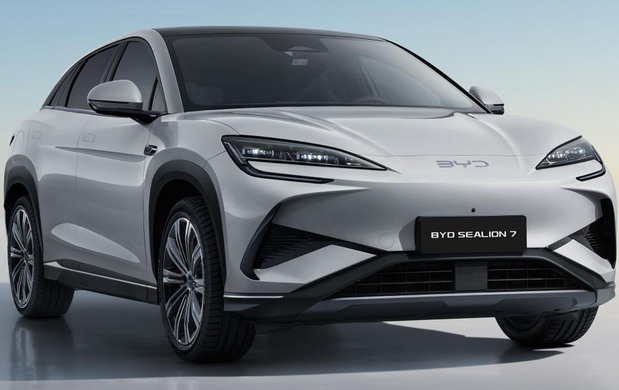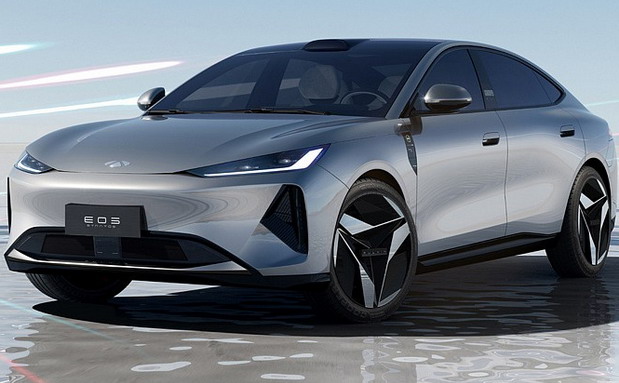In just a few years, China has developed into the world’s largest exporter of cars. Thus, it put pressure on established manufacturers in Europe, primarily in Germany – and not only because of lower prices.
China now produces and exports most of the world’s cars and has become a technological leader in the production of electric cars. Anyone who wants to be successful as a car company should now look to China, because innovations and new trends are born there.
“If we go back ten years, I remember talking to representatives of German and American car companies who laughed,” says analyst Einar Tangen of the Taihe Institute, a think tank in Beijing. “They said, ‘The Chinese want to make electric vehicles.’ Oh God! That’s ridiculous, they’re wasting money. What do they know about building cars?'”
Now, ten years later, “those same people are wondering how to respond to what China is capable of.”

Big subsidies and fierce competition
Chinese companies have shown what they can do at auto shows in recent years – innovative cars that are digitally connected to smartphones. Everything that works on a mobile phone should also work in a car, says an employee of the Chinese brand Neta, which was founded in 2018. The applications on the smartphone are connected to the touchscreen in the vehicle. A car should not only be electric, but also smart and fun – and cheap.
Like Neta, numerous other car start-ups have only been founded in recent years. China’s state and party leadership has heavily subsidized the industry and competition is fierce. In order to attract customers, manufacturers in the Chinese market are lowering prices. It’s a price war that not all companies survive and that also creates problems for expensive German carmakers.

This year, the relationship between import and export is changing
The traditionally higher export of European cars to China, most of which are German-made, could come to an end this year. Because, according to a PwC study, for the first time more Chinese cars could come to the European market than the other way around.
“For the first time, China has produced more than ten million electric cars, including hybrids, in one year,” Xi Jinping said. state and party leader of China in his New Year’s speech. Thus, in just a few years, China has become an automotive country of global importance.
Competition from e-cars from China is particularly problematic for the German car industry. In recent decades, German car manufacturers have had a strong presence in the Chinese market, especially Volkswagen. But market share is shrinking.
Buyers in China are increasingly buying electric models, less internal combustion engines and prefer to buy domestic brands. The BMW, Mercedes and Volkswagen group, which in addition to VW also includes the Audi and Porsche brands, is now trying to catch up with the Chinese competition. The strategy is: Research and development in China – and in cooperation with Chinese technology companies.
Europe as a new target: for sales and production
Chinese companies are also becoming increasingly competitive in third markets. Last year, the EU agreed on additional tariffs on electric cars from China. According to an investigation by the European Commission, China’s high subsidies lead to a surplus of electric cars on the domestic market, which are then sold in Europe at low prices – to the detriment of European manufacturers.
Chinese companies are also increasingly producing in Europe. Chery has been producing in Spain for several months, Leapmotor in Poland and the market leader in China, BYD, is building its first factory in Hungary.
The world’s largest Chinese manufacturer of batteries for electric cars CATL, in addition to factories in Germany and Hungary, plans to produce in Spain as well.
Source:
German wave
Photo: Arhiva Autoblog.rs / Neta / BYD / Chery
Source: autoblog.rs


